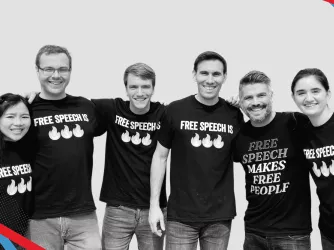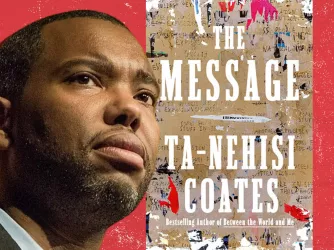Table of Contents
Campus Clampdowns on Free Speech Flunk Their Legal Tests

In a case that may help end the decades-long scandal of speech codes on college campuses, a federal jury in Georgia this month held the former president of a public university personally liable for violating the basic rights of one of his students.
In 2007, Valdosta State University President Ronald Zaccari expelled student Hayden Barnes after Mr. Barnes protested Mr. Zaccari’s plan to construct two new parking garages on campus. Mr. Barnes believed that the university should pursue more environmentally friendly alternatives, and he let the campus community know his opinion through a determined yet civil campaign, including posting flyers around campus, writing to the campus newspaper, and contacting fellow students and other members of the university community. One flyer pointed out that the estimated $30 million cost of the garages could provide 2,940 full scholarships for students at the school.
Mr. Zaccari apparently began looking for a reason to expel this meddlesome student. He settled upon a collage that Mr. Barnes had posted on Facebook that referred to the construction project as a "memorial" parking garage, a joke on the president’s belief that the garage would be part of his legacy. Mr. Zaccari, alleging that the use of the word "memorial" constituted a threat on his life, threw Mr. Barnes out of school, despite objections by his own staff and statements from multiple psychologists that the student (a believer in nonviolence and a decorated emergency medical technician) wasn’t a threat to anyone.
Mr. Barnes filed suit in 2008, enlisting the help of First Amendment attorney Robert Corn-Revere. This month a federal jury found against Mr. Zaccari and awarded $50,000 in compensatory damages to Mr. Barnes. Mr. Zaccari (who announced his retirement in the fall of 2007) may also be held liable for Mr. Barnes’s legal fees.
Presidents of public universities would normally be protected from such a decision by "qualified immunity," a legal principle that shields state employees from personal liability for constitutional violations while carrying out their job duties. However, this immunity can be pierced when a state official is found to have abused his legal authority and done something he either knew or should have known violated clearly established constitutional rights. Here, Mr. Zaccari ignored Mr. Barnes’s constitutional right to due process.
Unfortunately, there remains a real possibility that Valdosta State University—that is, Georgia taxpayers—will end up paying both Mr. Zaccari’s legal expenses and Mr. Barnes’s. Georgians shouldn’t take this without a fight.
The state should no more pay to defend a university president who ignored the Constitution than it should pay to defend a university president who committed a crime. The point of being able to pierce qualified immunity is to deter state employees from knowingly ignoring the fundamental rights of citizens.
The number of public university employees who do so is staggering. Since the 1980s, campuses across the country have maintained dramatic restrictions on speech. There are "free speech zones" like the University of Cincinnati’s, which—until a court ruling last summer—restricted student protest to .1% of the space on campus. And there are definitions of "academic abuse" like that of Auburn University at Montgomery, Ala., which blocks professors from making students "feel insignificant or inferior" and from "making judgments." Since grading is a form of judgment, it is hard to understand how any university administrator could think such a policy belongs in an academic environment.
Such restrictions on campus speech are consistently defeated in court—but only when challenged, which is not nearly often enough. According to the most recent annual study conducted by my organization, the Foundation for Individual Rights in Education, nearly 63% of more than 400 of America’s largest and most prestigious colleges maintain policies that seriously violate First Amendment principles.
More than a dozen major court rulings have forced public universities to end unconstitutional restrictions on speech. My organization has given hundreds of top colleges notice that their policies would likely be similarly struck down by courts. Because the law regarding student First Amendment rights is so clearly established, when public universities are proved guilty of enforcing unlawful speech codes anyway, administrators should be held personally liable. Taxpayers shouldn’t be forced to continue to bail out those who strip their sons and daughters of their most basic rights.
It would be best if universities chose on their own to make themselves safe places for students to discuss ideas, question sacred cows and even be politically incorrect. But universities have had decades to create such environments, and yet speech codes remain in place on hundreds of campuses. Perhaps the only way to force schools to follow the law is to launch more lawsuits and hold more administrators personally liable. If so, campus administrators have no one to blame but themselves.
Recent Articles
FIRE’s award-winning Newsdesk covers the free speech news you need to stay informed.

How to survive Thanksgiving

Right, left, and in-between: Can we bring our differences to the table?

FIRE is the proud home for those who defend free speech
